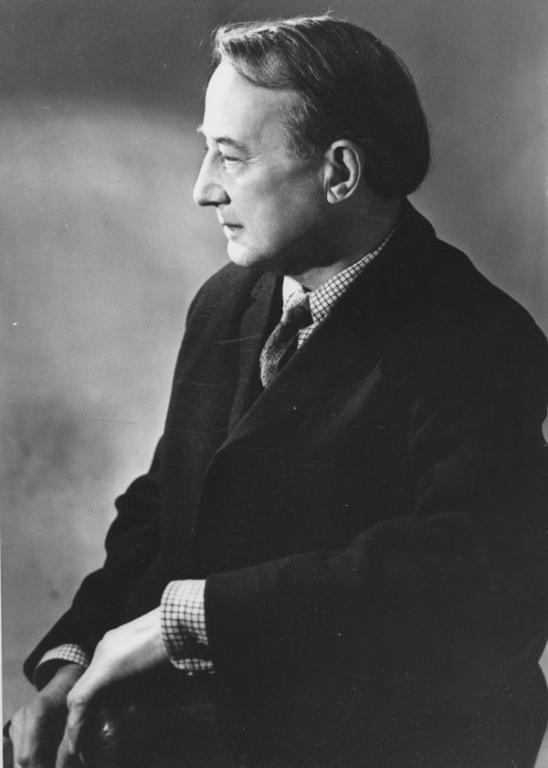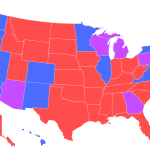The new editor-in-chief of Christianity Today Russell Moore, in discussing J. K. Rowling–who used to be demonized by many evangelicals for glorifying witchcraft and is now demonized by many LGBTQ folks for her opposition to transgenderism–reflects on the similarities between the hard right and the hard left, both of which can be accused of banning books and cancelling opponents, though for completely different reasons.
In the course of his argument, he points to an article by political scientist John G. Grove, who, in his words, shows “that extreme illiberal ‘wokeness’ and extreme illiberal ‘anti-wokeness’ are remarkably similar.”
I looked up that essay, published last year in National Affairs, entitled The Post-liberal Politics of Faith. But it is far more than a simplistic accusation that “both sides do it.” Grove makes a different kind of political distinction between that is far more illuminating than the spatial metaphors of “right” and “left,” or the temporal metaphors of “conservative” and “progressive.” And it is very helpful in sorting out the current controversies over the different kinds of conservatism and how Christians should approach politics.
Grove draws on the work of the English conservative philosopher Michael Oakeshott (1901-1990) and his book The Politics of Faith and the Politics of Skepticism. This is not a distinction between religious and secularist politics. Rather, it has to do with faith in politics vs. skepticism about politics.
The politics of faith has to do with the the pursuit of perfection, the faith that if we just form the right kind of government that implements the right policies, all will be well. Our problems will be solved, we will approach utopia, and we will attain the good in life.
The politics of skepticism, on the other hand, does not believe that government can do any such thing. It is skeptical of such pretensions. All it wants from government is for it just to keep basic social order. Anything beyond that modest–but extremely important–goal is out of line.
You should read the entire article, but here are some excerpts from Grove’s explanation:
The politics of faith sees government as an “inspirer” and “director” of society’s improvement tasked with imposing a “comprehensive pattern” on society — a “mundane [as in ‘earthly’] condition of human circumstances” that directs society toward some form of perfection. . . .
The politics of faith sees man and society as plastic, capable of being molded by political choices. For man to reach his perfection, the politics of faith contends that the institutions around him must be consciously structured to direct him toward it. . . . Thus, for the politics of faith, modern government is an indispensable means of earthly salvation.
If they are to succeed in their aim, governments must be unlimited and “omnicompetent,” at least theoretically. The politics of faith “welcome[s] power” and requires what Oakeshott calls “minute government” to attend to all the various details of human activity, “to keep every enterprise in line.”. . . It can therefore be restrained only by the practical judgments of those directing society’s quest for perfection.
The opposite pole of Oakeshott’s paradigm — the politics of skepticism — sees politics as a mode of human interaction distinct from the pursuit of perfection. It views the purpose of government as the maintenance of the basic social order necessary for human beings to live peacefully together and to pursue various ends as individuals or social institutions, or as a whole. . . .
Under the politics of faith, we know the direction we ought to go beforehand; the difficult task is mobilizing society to do what it ought to do or to be what it ought to be. Under the politics of skepticism, we don’t have the answers ahead of time: The order that maintains peace and harmony in a society must be determined by the political process itself. Though a politics of skepticism need not be defined by small government, it will prioritize constitutional limits on the state designed to prevent government from using its powers for purposes beyond the specific tasks assigned to it.
These two approaches to government are not ideologies or policies. Rather, says Grove, “our ideologies and policy ideas draw on the assumptions embedded in one or both of these styles.” Thus, Communism and Nazism, for all of their differences, both exemplify the “politics of faith.” They both use the government to impose an ideal of “perfection,” though they differ on what that ideal is.
Notice how this applies to the current debates within the conservative movement. National conservatism requires the politics of faith. Small government conservatism requires the politics of skepticism.
Which would be the more Biblical view of government? One might think the politics of faith would go better with the Christian faith, but, while many religions including some versions of Christianity play the role of giving a sacred status to the state, the Bible teaches us specifically not to have faith in anything or anyone other than the Lord God.
“Put not your trust in princes,” says the Psalmist, “in a son of man, in whom there is no salvation” (Psalm 146:3). Do not fall down in worship to the image of the King of Babylon (Daniel 3) and do not make your prayer to the Emperor (Daniel 6).
The New Testament values earthly government but it does not lay out a political program or a philosophy of government. Rather, it says that human government has a very important, but very modest, purpose:
For rulers are not a terror to good conduct, but to bad. Would you have no fear of the one who is in authority? Then do what is good, and you will receive his approval, for he is God’s servant for your good. But if you do wrong, be afraid, for he does not bear the sword in vain. For he is the servant of God, an avenger who carries out God’s wrath on the wrongdoer. (Romans 13:3-4)
Be subject for the Lord’s sake to every human institution, whether it be to the emperor as supreme, or to governors as sent by him to punish those who do evil and to praise those who do good. (1 Peter 2:13-14)
First of all, then, I urge that supplications, prayers, intercessions, and thanksgivings be made for all people, for kings and all who are in high positions, that we may lead a peaceful and quiet life, godly and dignified in every way. (1 Timothy 2:1-2)
Earthly rulers are established by God, but they are subordinate to Him as His servants, indeed, his agents, holding a vocation through which God works to restrain evil. Human governments exist to punish evildoers and to reward those who do good. What Christians want and pray for from their government is that they “may lead a peaceful and quiet life.” That is to say, Christians want the government to maintain basic social order.
But this is no small thing. This is not a formula for political quietism or for Christians to be uninvolved in their government. Today the government is not maintaining basic social order. Blowing up the family, encouraging sexual license, blurring the sexes, tolerating crime, allowing parents to kill their unborn children–these are expressions of the profoundest social disorder.
You can be a political skeptic–a small government conservative rather than a national conservative–while still battling abortion and opposing the other plagues of our culture. You don’t need to “have faith” in your government in order to try to make it better.
Politically skeptical Christians will not, however, expect perfection in the government or the culture. There will always be a need to struggle against sin in this fallen world. Politically skeptical Christians will not become disillusioned with their political leaders because they will have no illusions. They will neither divinize the state nor secularize the church. And they won’t make the mistake of confusing the kingdoms of this world with the kingdom of Heaven.
Photo: Michael Oakeshott by Library of the London School of Economics and Political Science – Professor Michael Oakeshott, c1960sUploaded by calliopejen1, No restrictions, https://commons.wikimedia.org/w/index.php?curid=15987493












